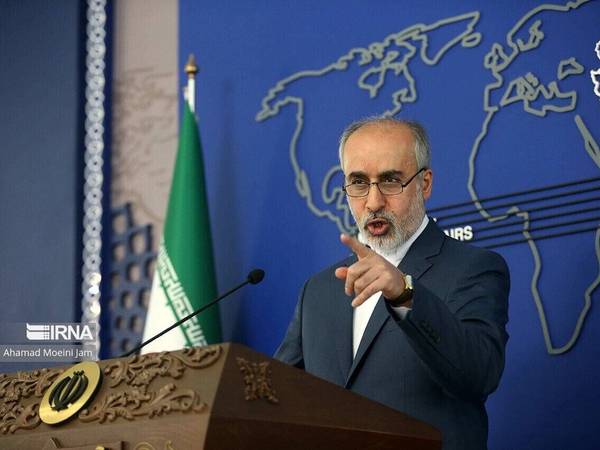Nasser Kanaani, the Iranian Foreign Ministry spokesperson, condemned the Israeli military's taking control of the Rafah crossing and blocking a critical aid route into the besieged strip.
Kanaani, who was the first official from Tehran to comment on Tuesday's military action, referred to Israel as "the main threat to international peace and security" and blamed the United States for the ongoing conflict between Hamas and Israel, which started when Iran-backed Hamas killed over 1,200 civilians and took 250 hostages on October 7.
Israel has been requesting civilians in Rafah to evacuate since Monday to attack Hamas' infrastructure in the southern town, which it believes to be the organization's last stronghold. According to Israel, tunnels have been discovered in Rafah that allow for the entry of weapons and other supplies for Hamas and other groups.
However, the UN and US have cautioned that an assault on the city could have disastrous humanitarian ramifications, home to over a million Palestinian refugees.
According to Hamas numbers, over 34,000 Gazans in the strip have been killed in Israel's retaliatory attacks after the October 7 invasion.
Hamas on Monday said it had accepted a ceasefire deal proposed by Egypt and Qatar - despite Israel's indication that it would not accept the proposal as it stood. Hamas has been calling for a full withdrawal of Israeli troops from Gaza and the release of thousands of Palestinians in Israeli jails, most on terror charges. Israel's war aims have continued to be that it will not withdraw until Hamas is destroyed and the remaining 133 hostages taken from Israel on October 7 are freed.
Since Tuesday, the Israeli military has taken control of the Palestinian side of the Rafah crossing between Gaza and Egypt. The Rafah crossing is a critical humanitarian route, which is of particular importance to Egypt. The country is anxious to avoid a mass migration of Palestinians into its Sinai desert in case of a major offensive into the city.
With a permanent presence at the crossing, Israel could control all traffic, including aid shipments. It could act as a base for further attacks against the tunnels across the border from which Hamas obtains its supplies.
Iran has long funded, armed and trained Hamas; the US has named Iran as the world's biggest state sponsor of terror. As the Hamas attack took place on October 7, Tehran's top officials and government media celebrated the incident and organized street celebrations immediately. Ismail Haniyeh, the Hamas leader, revealed in March 2022 that the Islamic Republic paid Hamas $70 million to aid it in developing missiles and defense systems and US government research under the Trump administration showed Iran funding Hamas to the tune of $100m annually.
